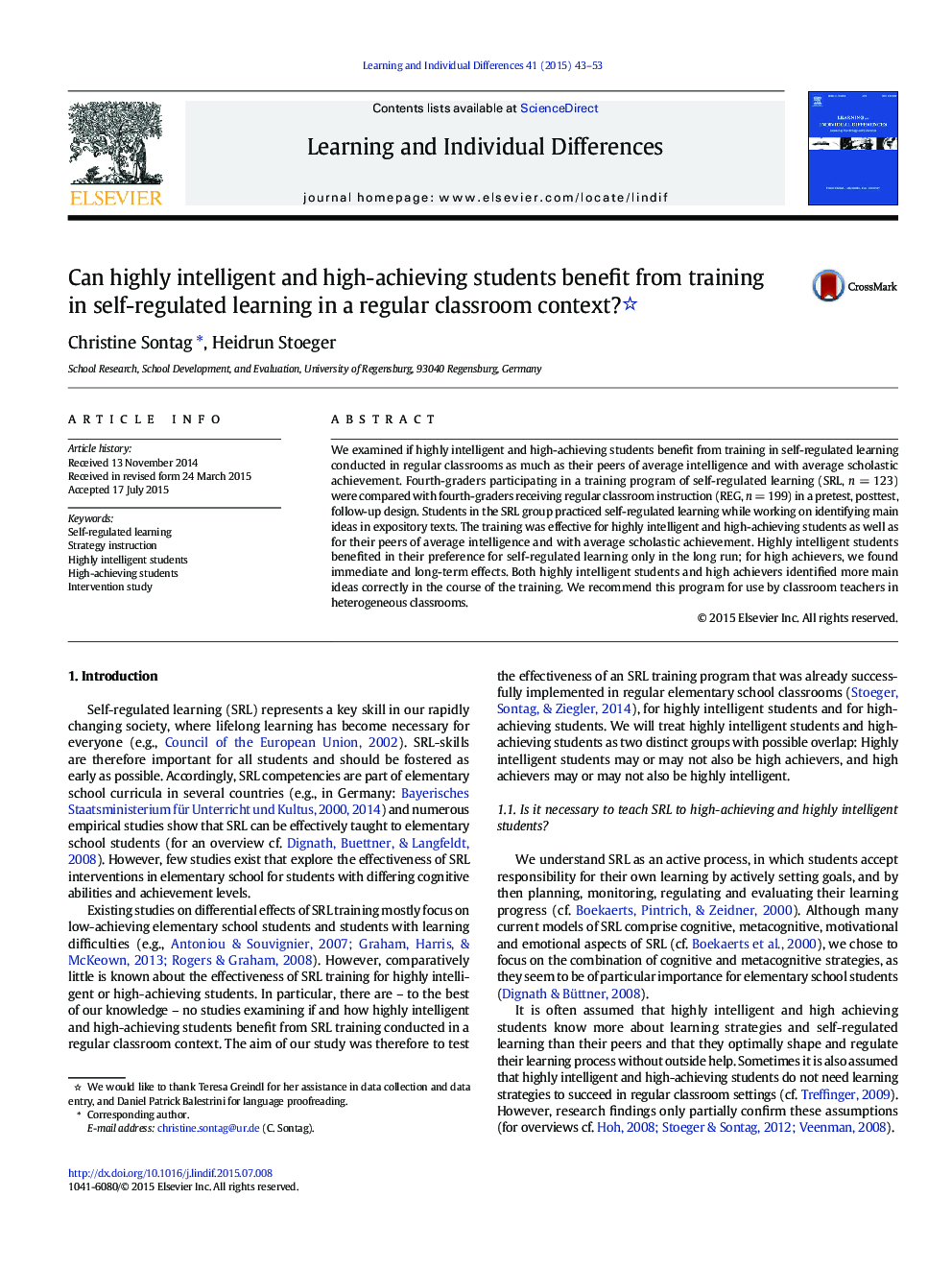| Article ID | Journal | Published Year | Pages | File Type |
|---|---|---|---|---|
| 364680 | Learning and Individual Differences | 2015 | 11 Pages |
•Highly intelligent and high-achieving students benefited from SRL-training.•Their preference for self-regulated learning increased.•Their achievement in the training task (identifying main ideas) increased.•Peers of average intelligence and achievements in the same classes benefited, too.•We recommend this program for use in heterogeneous classrooms.
We examined if highly intelligent and high-achieving students benefit from training in self-regulated learning conducted in regular classrooms as much as their peers of average intelligence and with average scholastic achievement. Fourth-graders participating in a training program of self-regulated learning (SRL, n = 123) were compared with fourth-graders receiving regular classroom instruction (REG, n = 199) in a pretest, posttest, follow-up design. Students in the SRL group practiced self-regulated learning while working on identifying main ideas in expository texts. The training was effective for highly intelligent and high-achieving students as well as for their peers of average intelligence and with average scholastic achievement. Highly intelligent students benefited in their preference for self-regulated learning only in the long run; for high achievers, we found immediate and long-term effects. Both highly intelligent students and high achievers identified more main ideas correctly in the course of the training. We recommend this program for use by classroom teachers in heterogeneous classrooms.
